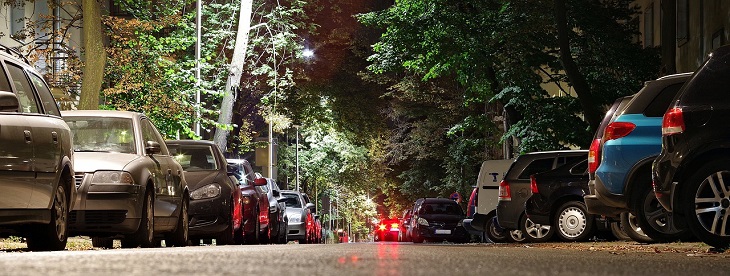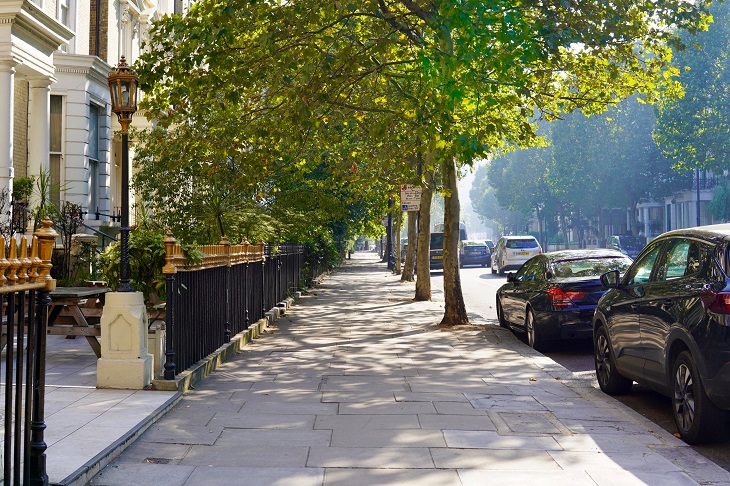Disability placard holders need to know the rules around handicap parking in their state. Understanding what your entitlements are as a disabled placard holder means you can get the most value out of the parking program and avoid breaking any rules.
When everybody knows and abides by the rules, the disabled parking system works smoothly and benefits all disability permit holders. One important area that can cause some confusion is residential parking – so can you park in residential parking with a disability placard? Let’s find out.
Each State Has Its Own Disabled Parking Rules
It’s crucial to remember that all US states, and even jurisdictions within states, have their own disabled parking rules. All states adhere to the federal Americans With Disabilities Act (ADA) disabled parking guidelines, but while each jurisdiction abides by ADA law, the specific details of can vary depending on where you are in the country. Always make sure you know the rules in the specific area you live or intend to travel to.
Can You Park Anywhere With A Disability Placard?
A disability placard does not entitle its holder to park just anywhere. Disability placards entitle their holder to park in designated disabled parking spaces anywhere in the US (as well as in several foreign countries). These spaces are marked with the International Symbol of Access.
Permit holders are also entitled to park in metered, on-street spaces for free and for an unlimited time in most jurisdictions. However, there are plenty of places that disability placard holders are not entitled to park.
Can You Get A Parking Ticket With A Disability Placard?
Yes, disability placard holders can get a parking ticket if they park in a place in which it’s illegal to park. It’s also an offense for somebody to use a disability placard that is not their own.
Where Can You Not Park With A Disability Placard?
It’s illegal for disabled permit holders to park in the following locations:
- Any zone for which state law prohibits stopping, parking, or standing of all vehicles.
- Any area that state law reserves for special types of vehicles, such as ambulance loading bays and street vending businesses.
- The loading/unloading areas of designated ‘disabled’ spaces. These areas are marked by blue crosshatch striping.
- Privately owned or leased residential parking bays.
Can I Park In Residential Parking With A Disability Placard?
It is illegal for a disability permit holder to park in a residential parking space if the space is owned or leased by a specific person or address that has paid to have sole custody of that space.
Can I Park In Private Disabled Parking Bays With A Disability Placard?
Disabled permit holders can park in private disabled parking bays under certain circumstances:
- Permit holders can park in disabled bays in private residential garages if they live in the building, or are visiting somebody who lives in the building that the garage serves.
- Disabled parking spaces on private property can be reserved for employees and patrons of a business that owns the property. In this case, permit holders who are not connected to the business that owns the lot cannot park in the private disabled bays.
Disability residential parking bays that are located on public streets outside homes can be used by any disabled permit holders, because a disability permit entitles its holder to park in any designated disabled space. But remember: only park in residential disabled bays when absolutely necessary – for example, if you are visiting somebody who lives nearby.

Can I Get Residential Disabled Parking?
You can apply for residential disabled parking near your home, either on-street or in your private parking garage. To apply for a residential disabled parking space near your home, you should contact your local disabled parking authorities or city planning authorities. Just remember that the disabled space that is installed near your home will be for any disabled permit holder to use and you will not be able to reserve it.
How Do You Apply For A Disability Placard?
If you don’t yet have a disability placard, you can apply for one by visiting the Dr. Handicap online clinic. At the clinic, you will have a video consultation with a medical professional who will certify your Department of Motor Vehicles application.
Featured image by Daniel Frank on Pexels








